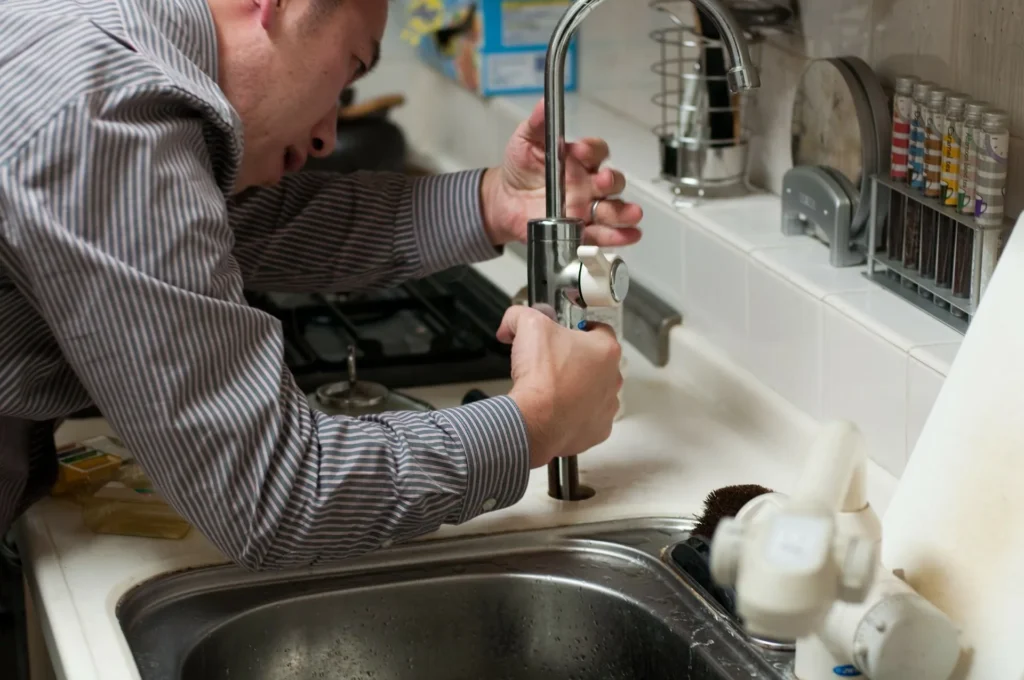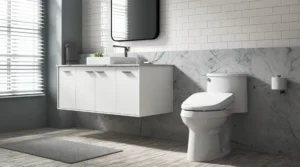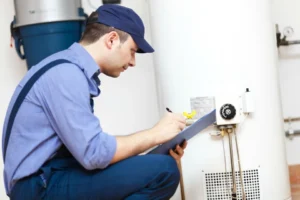When it comes to new construction plumbing, the process can seem overwhelming, especially if you’re not familiar with it. Completing plumbing work during new construction is crucial to ensuring the success of the project and the safety and comfort of those who will be living or working in the building. So, what exactly is involved in new construction plumbing, and why is a good plumbing system so important? This blog post aims to help you understand the process and the importance of good plumbing in new construction.
Underground Plumbing
The first stage of the new construction plumbing process is the underground phase. During this critical phase, trenching is done to create pathways for laying down the main sewer and water lines that will connect to the building. Careful attention is given to ensure that these pipes are accurately sized and buried at the correct depth, safeguarding them from freezing temperatures and potential sources of damage. Proper insulation and protective measures are taken to guarantee the longevity and durability of the plumbing system.
It is important to note that any errors made during the underground phase could lead to substantial problems in the future, resulting in significant disruptions to the building’s plumbing system. So, meticulous planning and execution at this stage are crucial to ensure a reliable and efficient plumbing infrastructure that stands the test of time. This is not a DIY endeavor and should be left to professionals.
Rough-In Plumbing
During the rough-in plumbing phase, which takes place after the building’s foundation has been laid but before walls and flooring are constructed, careful planning and skilled work are crucial. This pivotal stage involves strategically placing pipes within the walls and flooring to ensure the smooth flow of water to essential fixtures such as sinks, toilets, and showers. The significance of the rough-in phase cannot be overstated, as it serves as the foundation upon which the entire plumbing system relies for optimal functionality.
It is imperative that the plumbing contractor possesses a comprehensive understanding of the plumber’s layout plan prior to any framing activities, as this will help prevent potential conflicts with electrical, HVAC, and other construction systems that may follow similar routes. By paying meticulous attention to detail during the rough-in plumbing process, a solid groundwork is established for a well-functioning plumbing system that will stand the test of time.
Final Trim Plumbing
During the final trim plumbing stage, which takes place after the completion of walls and flooring, attention is turned to the installation of crucial elements such as sinks, toilets, and fixtures. This phase also entails a comprehensive evaluation of the entire plumbing system to ensure seamless functionality. It is of utmost importance to execute the installation of these fixtures with precision, as any oversight can potentially result in significant issues, including leaks and water damage, which may require extensive repairs.
The Importance of Good Plumbing in New Construction
Good plumbing is vital for new construction because a poorly installed plumbing system can cause chaos even after the construction is done. At the most basic level, a poorly designed or executed plumbing system can cause water damage, mold growth, and health hazards resulting from sewage seeping into the water supply. Even minor problems such as leaks can cause significant property damage and costly repair bills. A plumber can provide a well-installed and thought-out plumbing system which gives peace of mind to property owners and occupants.
New construction plumbing is essential for ensuring the safety, comfort, and functionality of any building. The process is carried out in three phases: underground, rough-in, and final trim plumbing, and each phase has its critical role. A good plumbing system can prevent unnecessarily high water bills, reduce maintenance costs, prevent water damage from mold and structural problems, and ensure proper waste disposal. With correct installation, a good plumbing system should operate efficiently and successfully throughout the building’s life, keeping occupants happy and providing the invaluable peace of mind.









